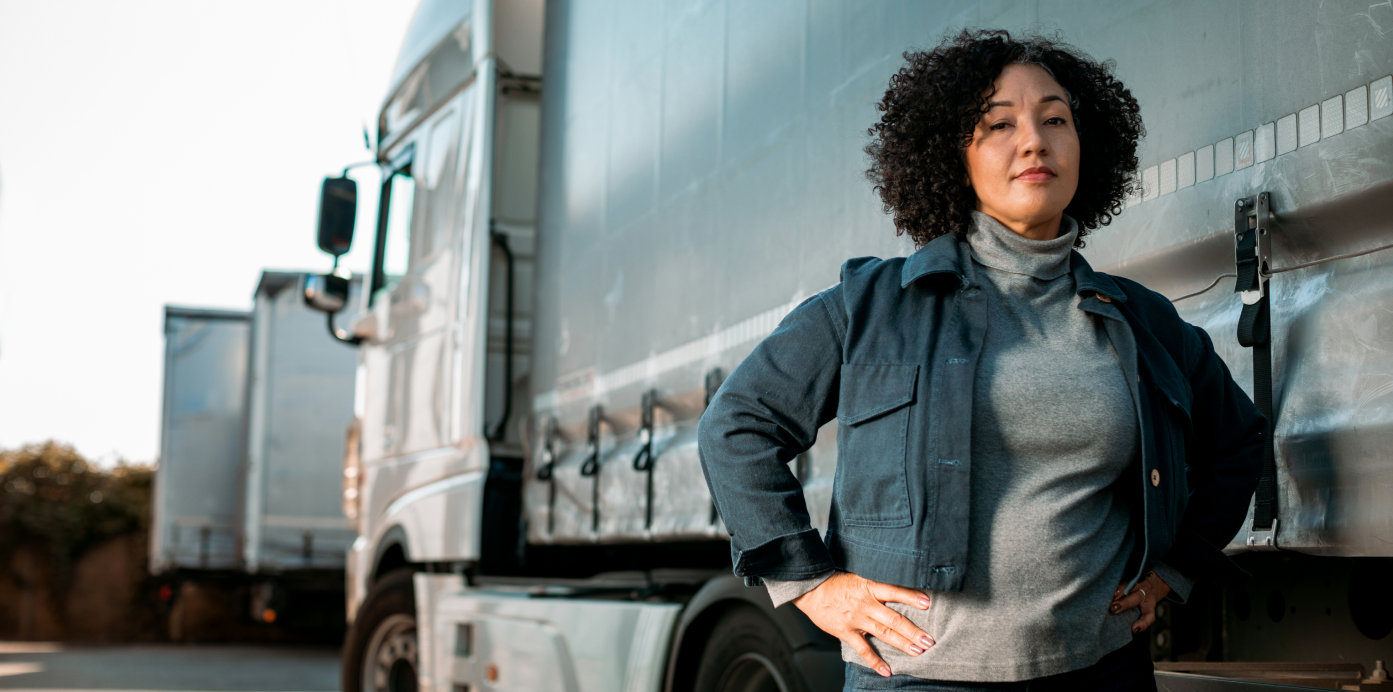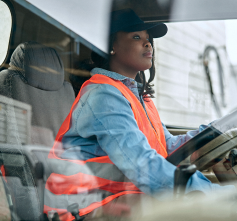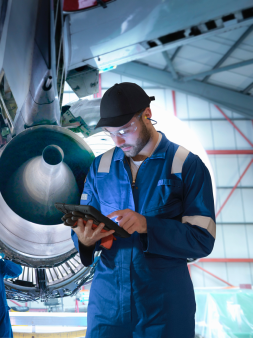subscribe to our newsletter to receive news and updates.
one future, many routes
As we look toward tomorrow, how can we reduce transportation emissions? Many lower carbon energy solutions — enabled to scale by well-designed policies — are needed to make meaningful progress for us all.



conventional engines need unconventional solutions








our solution
we’re shifting how transportation is fueled
Reaching global net zero emissions is no small feat. Chevron is working with partners to help create a range of viable renewable fuels as both drop-ins and full substitutions for existing fuels. And they’re making an impact.
trucking
Lowering carbon intensity of existing fleets with renewable fuels.

trucking
lowering carbon emissions in commercial fleets with renewable fuels
With increased demand for delivery comes increased emissions —26% of the entire sector. For commercial managers, Chevron can deliver bio-based diesel, renewable natural gas and hydrogen as solutions for existing fleets.
-
bio-based diesel
Chevron produces a wide range of high-quality renewable diesel and biodiesel fuels. We aim to grow our renewable fuels capacity to 100,000 barrels per day by 2030.
-
renewable natural gas
Chevron has invested $28 million in the Adopt-a-Port initiative, which provides carbon-negative renewable natural gas to truck operators serving the ports of Los Angeles and Long Beach.
-
hydrogen
In 2021, Chevron announced a collaboration with global power and hydrogen technologies leader Cummins. The goal: to help develop commercially viable hydrogen transportation solutions for both heavy- and light-duty vehicles.
automotive
Developing affordable, reliable and ever-cleaner fuels for the road.

automotive
developing lower carbon solutions for drivers
SUVs, four-doors, and even two-seaters collectively account for 75% of transportation CO2 emissions. Reducing emissions from road trips and daily commutes takes a variety of solutions, which will include hydrogen and compressed natural gas.
-
hydrogen
In collaboration with Iwatani, Chevron plans to construct 30 hydrogen fueling sites in California by 2026. And in 2021, an alliance was formed with Toyota aimed at developing a viable, large-scale hydrogen business.
-
compressed natural gas
Our plan is to open 30 compressed natural gas stations by 2025. We’ve also partnered with Mercuria to own and operate their network of 60 compressed natural gas stations across the U.S.
aviation
Producing renewable fuels for sustainable skies.

aviation
producing sustainable aviation fuel for lower CO2 emissions
Air travel is energy-intense and hard to electrify. It's also the fastest growing source of transportation CO2 emissions. Chevron was one of the first to coprocess biofeedstocks to produce jet fuel with renewable content in the U.S. In 2021, we produced an initial test batch of sustainable aviation fuel.
-
sustainable aviation fuel
Chevron partnered with Delta and Google to track sustainable aviation fuel test batch emissions using cloud-based technology. We’re also part of the Clean Skies for Tomorrow Coalition, which works to accelerate the use of SAF for a reduction in greenhouse gases.
marine
Reducing CO2 emissions for maritime.

marine
developing viable fuel alternatives for fleets and common carriers
Commercial shipping is responsible for almost 90% of global trade. But all those ships release about one billion metric tons of CO2 into the air. Through the use of bio-based diesel, Chevron is developing viable alternatives for fueling seaborne vessels.
-
bio-based diesel
Chevron offers a wide range of high-quality renewable diesel, biodiesel and bio-residual fuels. We aim to grow our renewable fuels capacity to 100,000 barrels per day by 2030.
rail
Working toward lower rail emissions with bio-based diesel and hydrogen.

rail
powering the future of rail with lower emission renewable fuels
Recently, the U.S. Federal Railroad Administration issued a climate challenge to the rail industry: net zero emissions by 2050. New technology and Chevron’s range of renewable fuels such as bio-based diesel and hydrogen are helping make that goal a reality.
-
bio-based diesel
Union Pacific is running four locomotives in southern California purely on Chevron Renewable Energy Group’s bio-based diesel blend. It’s the first time in Union Pacific’s history that a train is powered solely by renewable fuels. And if all goes well, it won’t be the last.
-
hydrogen
Chevron is working with Progress Rail and BNSF Railway to determine the performance of hydrogen fuel for rail. Together, they’ll design and build prototype hydrogen-powered locomotives and develop the fuel technology and infrastructure to make it possible.
Andy Walz
President of Americas Products, Chevron
biofeedstocks
cultivating affordable, reliable and ever-cleaner energy
The shift to high-quality, lower carbon fuels depends on energy-intense biofeedstocks. In 2021, we used 15 different biofeedstock types and continue to work alongside agricultural suppliers and allies. Together, we can build supply chains that keep waste materials out of landfills. We can increase crop yields. And, we can contribute to the development of next-gen energy long into the future.
soybean oil
soybean oil
We use energy-dense soybean oil for various industrial applications and to produce bio-based diesel. As part of a new joint venture with Bunge, Chevron is establishing a reliable supply chain from farmer to fueling station.
peanuts
peanuts
They’re not only good for trail mix. Peanuts helped revolutionize the transportation sector, with their oil fueling the world’s first diesel engine. Today, Chevron is collaborating with scientists at Texas A&M AgriLife to explore peanut oil as a renewable biofeedstock.
inedible animal fats
inedible animal fats
While certain animal fats such as beef tallow, pork grease and chicken fat aren’t great for eating, they can be used to create renewable fuel. With a limited market and a lower cost, Chevron is using fats like these to produce high-quality bio-based diesel.
distillers corn oil
distillers corn oil
During corn ethanol production, corn is fermented and the ethanol is boiled off. The remaining distilled mixture can be processed into one of the lowest-rated carbon intensity feedstocks available. We then use it to produce bio-based diesel.
cover crops
cover crops
Chevron has invested in CoverCress Inc. to create a lower carbon intensity oil feedstock from cover crops that can be grown between rotations of corn and soy. These cover crops can benefit the land and supplement farm incomes.
used cooking oil
used cooking oil
A use for fryer oil that goes way beyond making fries. The product of a variety of vegetable oils and animal fats, used cooking oil that can swamp landfills is instead collected. We then use it to create bio-based diesel.
canola oil
canola oil
Similar to soybean oil, canola oil is a premium feedstock that comes from the seeds of the canola plant. It can be used in oleochemicals for various industrial applications. Chevon uses it to produce high-quality bio-based diesel.
policy position
progress toward a lower carbon road ahead
We support policies that guide the scaling of lower carbon intensity solutions for the transportation sector. Because creating fewer transportation emissions today puts us on the road to a lower carbon future.